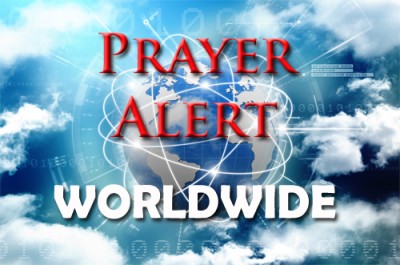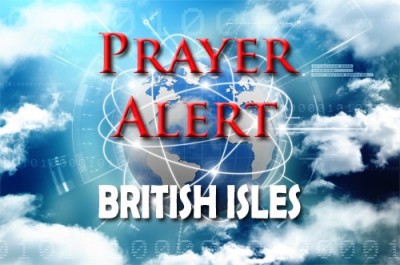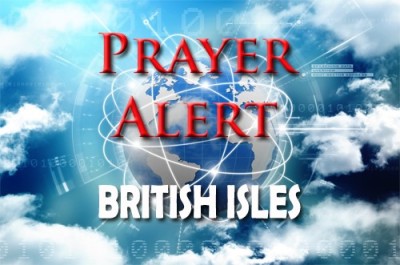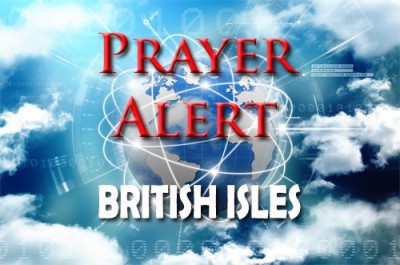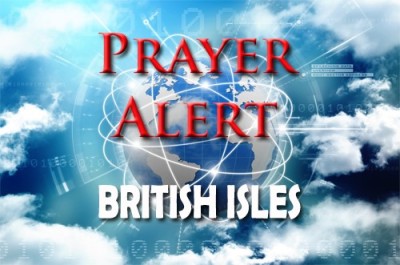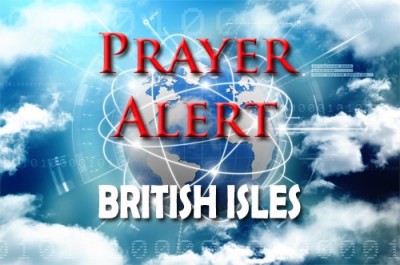Peru: Indonesian diplomat assassinated
04 Sep 2025Peru is reeling after the shocking assassination of Indonesian diplomat Zetro Leonardo Purba, who was fatally shot three times in Lima. The government expressed deep condolences and condemned the killing as a ‘heinous act’, pledging full cooperation with Indonesian authorities and enhanced protection for embassy staff. While the national police chief suggested the incident might have been a targeted attack by foreign assailants, Indonesian officials expressed doubt, noting Purba had not received prior threats. Some attributed the tragedy to rising violent crime in the capital, where homicides and extortion have surged under president Dina Boluarte. Purba, who had been serving in Lima for only five months, leaves behind a wife and children. His death comes just weeks after Peru and Indonesia marked fifty years of diplomatic relations with a free-trade agreement.
Actor shares faith: 'God wants all of you'
29 Aug 2025Actor Gavin Casalegno, best known for his role in ‘The Summer I Turned Pretty’, is gaining recognition not just for his acting but for boldly sharing his Christian faith. The 25-year-old regularly posts on TikTok, speaking openly about prayer, repentance, and living wholly for God in Hollywood. He warns against complacency, saying, 'God wants all of you, not just the Sunday version’, and testifies that real strength comes from relying on God, not self. Casalegno has spoken vulnerably of repentance as a turning point, describing how admitting his need brought a clear experience of God’s love. Raised in a Christian family, he says stepping back from social media to focus on God and family keeps his perspective healthy. Last year he married nurse Cheyanne King, who also celebrates her faith publicly, bringing Christ’s light into healthcare. Together, they launched a clothing line inspired by biblical truths, designed to spark meaningful conversations. Casalegno joins other Hollywood figures unashamedly professing Christ, demonstrating that faith is becoming more visible in mainstream culture.
He turned to God after thief stole his Bible
29 Aug 2025Matt Williams of Tennessee was heartbroken when his Bible case, filled with family photos and treasured memories, was stolen from his vehicle. In that moment, he turned to God in prayer, surrendering the situation: 'Not my will but yours’. Astonishingly, his Bible was later discovered inside another stolen car, placed alongside a second copy of the Scriptures. The chain of events that led to its recovery seemed providential: the mother of the woman whose car had been stolen posted online about finding the Bible, and Williams recognised it as his. The unexpected return of his precious Bible reminded him of God’s intimate care: 'Not even a sparrow falls without His notice. Apparently not even a Bible gets stolen without His response.' This showed Williams that God is attentive to the details of His children’s lives and answers prayer in personal, unexpected ways. His testimony is a reminder that God values His people deeply and delights to show His faithfulness.
Reform UK leader Nigel Farage has defended his hardline immigration plan, ‘Operation Restoring Justice’, which would see all illegal Channel crossings - including those by women and children - met with deportation if his party won power. He argued that the proposals align with Britain’s Judeo-Christian heritage, despite opposition from Church leaders, whom he accused of being 'out of touch' with ordinary believers. Farage suggested that criticism from bishops and 'The Establishment' was inevitable, but insisted meaningful change often comes through struggle. His plan includes withdrawing from the European Convention on Human Rights, scrapping the Human Rights Act, and suspending treaties used by courts to block deportations. Labour dismissed the proposals as an 'unworkable gimmick,' while Conservative leader Kemi Badenoch accused Reform of copying Tory policies. The announcement follows rising protests near asylum seeker accommodation and record asylum claims in 2024. Reform UK claims it could deport up to 600,000 people in its first term. See
A surge in flag-flying across Blackley, north Manchester, has sparked fierce debate about patriotism, immigration, and racism. England and Union Jack flags now line lamp posts and homes, part of a wider campaign called 'Raising The Colours’. Supporters argue it is a proud display of national identity and frustration with government failures on illegal migration, insisting the flags are not racist. Don and Anne Lees, who joined the movement, said it made them 'proud to be English’. Yet critics see the campaign as intimidating, echoing past racial tensions. One resident compared the masked men who put up flags at night to the far right of the 1970s, warning that Polish neighbours might feel threatened. While some shopkeepers welcome the extra sales, others worry that it risks division. Labour MP Graham Stringer said patriotism has deep roots in Blackley and insisted national flags 'shouldn’t feel threatening’, urging people not to see them as owned by extremists. Rising asylum numbers and strained services fuel the controversy.
More than 500 arrested at Notting Hill Carnival
29 Aug 2025This year’s Notting Hill Carnival saw more than 500 arrests over two days, a sharp rise from 349 in 2024. Police deployed over 7,000 officers daily, supported by CCTV, knife searches, and live facial recognition technology, which directly led to 61 arrests, including a registered sex offender, a machete attacker, and a fugitive wanted for a decade. While four stabbings occurred, none were fatal - a reduction in serious violence compared to recent years when murders took place. Arrests included 167 for drugs, 50 for offensive weapons, 21 for sexual offences, and 55 for assaults on police, with two officers requiring hospital treatment. Deputy assistant commissioner Matt Ward praised both proactive policing and carnival organisers for discouraging violence. Despite improvements, concerns remain over crowd safety and overcrowding risks. An independent review is expected to report in October.
67 people charged over Palestine Action support
29 Aug 2025The Metropolitan Police have confirmed that 67 people have been charged under section 13 of the Terrorism Act for allegedly showing support for Palestine Action, a proscribed organisation. Those charged, aged between 21 and 83, were arrested during central London protests on 5 and 12 July. They face a maximum sentence of six months’ imprisonment and are due to appear for trial in September and October. Since the group’s proscription on 5 July, more than 700 arrests have been made nationwide. Critics argue the ban infringes free speech, but Yvette Cooper insists Palestine Action has been responsible for serious crimes, including aggravated burglary and violent disorder. Commander Dominic Murphy rejected claims that protests had stretched police resources, stressing that law enforcement remained robust. The group has been granted permission to challenge the ban in the High Court in November, setting up a legal battle over the boundaries between protest and terrorism.
In a televised cabinet meeting, Donald Trump launched a furious tirade against the UK, blaming wind farms for rising energy costs. Reviving his long-standing grudge against offshore turbines near his Scottish golf course, he falsely claimed that 'windmills' had sent UK energy prices 'through the roof' and were 'ruining every country’. He also repeated discredited conspiracy theories linking turbines to whale deaths, despite scientists attributing recent strandings to climate change and warming seas. Experts note that wind power is in fact one of the cheapest energy sources, significantly undercutting gas, coal, and nuclear power. Surveys show it is the UK’s second most popular form of energy generation, just behind nuclear, while fossil fuels remain the least favoured. Trump also criticised solar farms for taking up too much land and suggested the UK faced a 'bad awakening' for closing down oil operations. His comments marked a rare direct attack on a US ally, stirring debate over his reliability on climate and energy issues.
